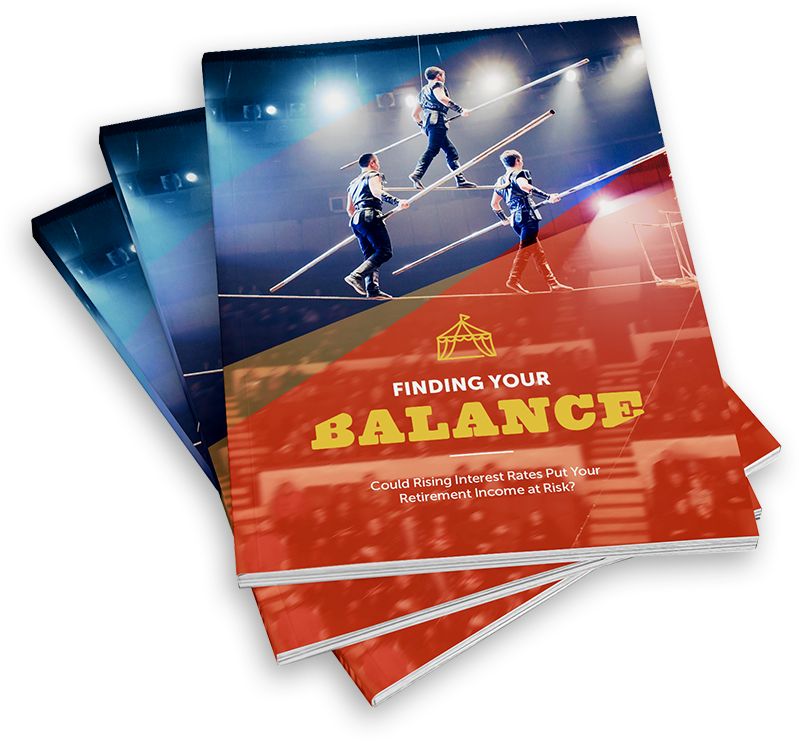Retirement Planning Tips : How To Break Up With Your Broker and Change Your Advisor!
Have you made the decision that it’s time to end your relationship with your broker? Have you found a better match for your family and your finances? Well, congratulations on making the decision to put you and your money first.
I’m Jessica Cannella, co-founder and president of Oak Harvest Financial Group. Today we’re going to discuss a pragmatic approach to have this dialogue with your broker because I know that breaking up is hard to do.
[music]
Jessica: Maybe you’ve been thinking about how to have this conversation with your broker. Have you pondered the phone call, an email, maybe a text message, a singing telegram? You may feel a little bit apprehensive to end this relationship, especially if you feel that your broker has done a good job overall managing your money, or maybe you’ve worked with them for a very long time.
I had a couple that decided to become clients of Oak Harvest Financial Group, our firm here in Houston, and they were up against this exact challenge. They saw all of the benefits and value of working with the retirement specialist, and they’d worked with their previous accumulation advisor for almost 30 years. They were so conflicted on how to call and have this conversation. I recommended – and we’ll call this couple Steve and Ann – that they use what I like to call the positivity sandwich when making this phone call to their broker.
Really how I arrived on it is I thought to myself, “If I had a client that I’d taken excellent care of for 30 years that was deciding to depart from my services, what would I want to be told sitting on the other end of that conversation?” When you’re ready to have that critical conversation with your broker to break up, you might want to use the positivity sandwich. It will provide you the framework that you need to have an effective conversation.
The Positivity Sandwich
A positivity sandwich is a positive statement, followed by your decision, ending with a positive statement. Maybe the conversation with Steve and Ann and their broker went something like this. “Hey, Bob. It’s Steve Smith calling. I wanted to call in first to thank you so much for the ability to help us get to the point in our lives where we can retire. Thank you for your service. We wouldn’t even be having this conversation if it wasn’t for your efforts.
 I’m also calling to let you know that I have decided to change relationships with a different money manager who happens to specialize in retirement planning. They offer things like tax planning, they’re local to our home, and we’re interested in moving forward with them. Lastly, Bob, I wanted to let you know that if I can think of anybody that would benefit from your services, I’ll be sure to send them your way. Thank you again for the relationship, and I wish you the best of good luck as we part ways.”
I’m also calling to let you know that I have decided to change relationships with a different money manager who happens to specialize in retirement planning. They offer things like tax planning, they’re local to our home, and we’re interested in moving forward with them. Lastly, Bob, I wanted to let you know that if I can think of anybody that would benefit from your services, I’ll be sure to send them your way. Thank you again for the relationship, and I wish you the best of good luck as we part ways.”
In conclusion, it’s my belief that we as advisors go into our area of expertise, into our line of work, financial advisory, because we have hearts of service. We want to be able to help the person sitting in front of us. If you’re making the choice to move on from your broker, more than likely it is because you’ve outgrown them. Maybe it’s you’re now in retirement, and they helped you to get to the place where you could retire. They were your accumulation advisor, and now you prefer to work with a retirement specialist who could help you with real challenges in retirement that are not there while you’re working and accumulating your wealth.
Challenges like when’s the best time to take social security, and how do I remain tax efficient? A Roth conversion – something that we should talk about. Maybe it’s your Medicare premium, or how to take a distribution strategy from your portfolio. Whatever the reason is that you decided to move on to greener pastures or change your advisor, your existing advisor went into their line of business, much like myself, to help people. Therefore, we know where our limitations exist.
Doing What’s Best For Your Family
In my experience, it has not been an issue. When you use the positivity sandwich, thank your advisor or broker for their service and deliver your decision. At the beginning, middle, end of day, and every minute in between, this is your money and it’s important that you do what is best for you and your family. The professional across the other side of the table or on the other end of the phone understands that and will support you in your decision.
Unless it’s a blood relative. In that case, I add nothing for you. It’s personal. I recommend at the outset, don’t work with your mother, son-in-law, brother-in-law, aunt, uncle, cousin. Have an advisor that is going to be able to have an unbiased, unemotional approach to your finances because you will benefit from that.
[music]
[00:05:04] [END OF AUDIO]



